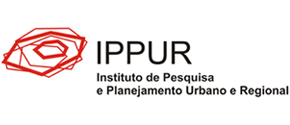Resumo em Inglês
Rosélia Périssé da Silva PiquetDoutora em Teoria Econômica pela Universidade Federal do Rio de Janeiro; Professora Titular aposentada da UFRJ; Coordenadora do Mestrado e Doutorado em Planejamento Regional e Gestão da Cidade, Universidade Candido Mendes - Campos Marlúcia Junger LumbrerasDoutora em Planejamento Urbano e Regional (UCAM); Professora do Instituto Federal de Educação, Ciência e Tecnologia Fluminense (IFF) - Campus Itaperuna-RJ.Changes in the path of Brazilian oil policy
Brazil hás become an example to analyze the so-called “reprimarization”, having as an indicator the changes in political guidelines regarding the Brazilian oil industry. To support this statement, the text will explain the changes in the course of Brazilian policy towards the oil sector from the 1950s to the present day in three phases: (1) implementation, consolidation and growth of the sectors activities in Brazil, among 1953 and 1997; (2) changes in policy guidelines for the sector between 1997 and 2016; and (3) from 2016, when Petrobras starts to concentrate its investments in the Exploration and Production (E&P) stage. The selected indicators are the guidelines adopted regarding: (i) the training and qualification programs for labor and the development of technological innovations; (ii) the Local Content Policies (PCL); and (iii) Petrobras divestment program. The analysis shows signs of a “reprimarization” as there was a downturn in the qualification programs, a reduction in the percentages of local content and the possibility of wasting the potential to generate wealth with the limitations of Petrobras operations.
Resumo em Português - Texto
Download PDF
Voltar



